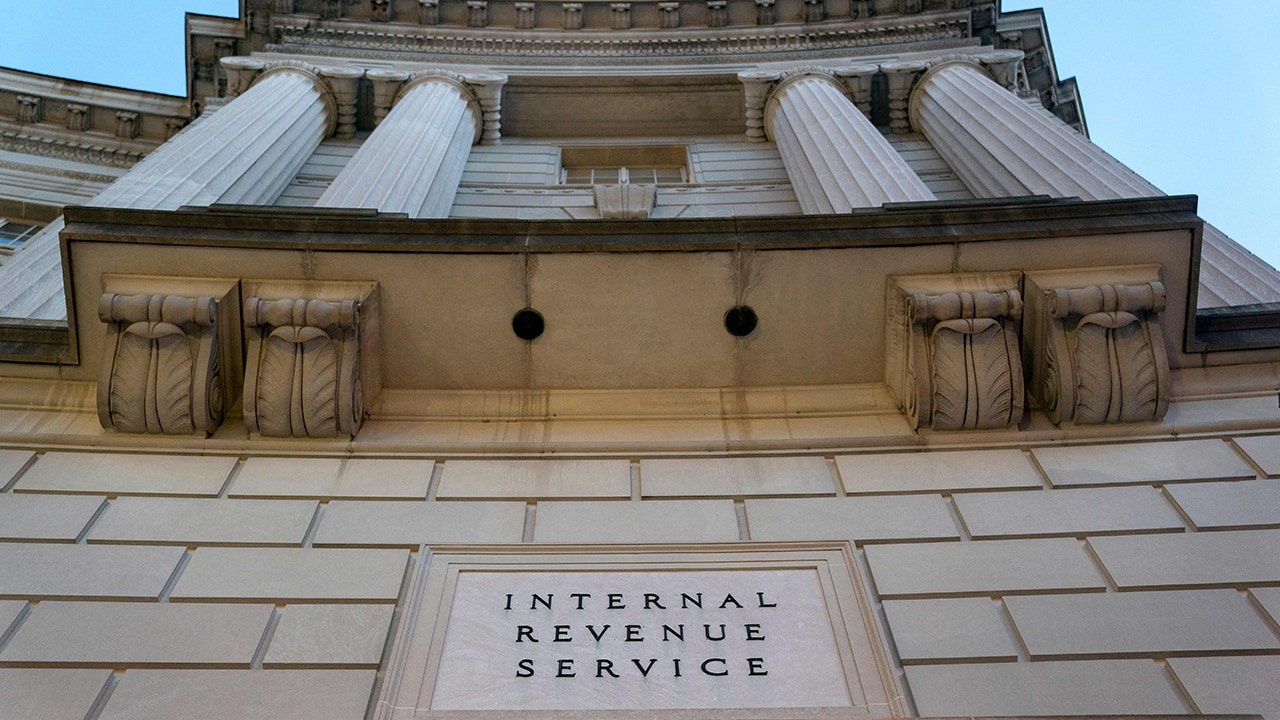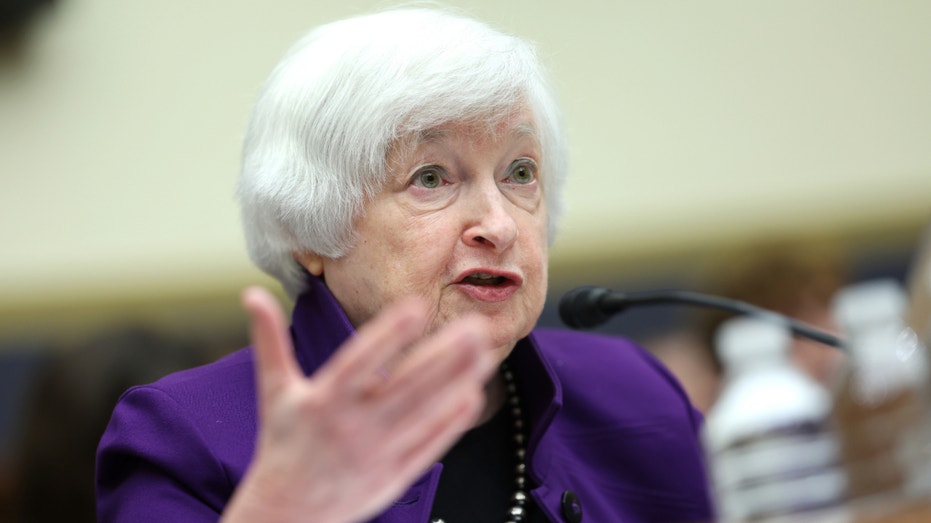


Rep. Greg Steube, R-Fla., joins ‘The Bottom Line’ to discuss President Biden’s intent to let Trump-era tax cuts expire.
The IRS and Treasury Department on Monday unveiled a plan to end a major tax loophole used by wealthy taxpayers, a move that could generate as much as $50 billion in revenue over the next decade.
The plan targets so-called “partnership basis shifting,” a transaction that allows a business or person to operate through many different legal entities in order to take more deductions and minimize what they owe, according to Treasury.
“These tax shelters allow wealthy taxpayers to avoid paying what they owe,” IRS Commissioner Danny Werfel said in a statement.
REMOTE WORKERS FACE A DOUBLE TAXATION THREAT
Biden administration officials likened the practice of basis shifting to a “shell game” that allows businesses and individuals to “hide from a tax bill.”
View of the Internal Revenue Service (IRS) building in Washington, DC, on January 24, 2023. (STEFANI REYNOLDS/AFP via Getty Images / Getty Images)
Funding for the latest enforcement efforts was included in the Democrats’ health care and climate change spending bill – dubbed the Inflation Reduction Act – that President Biden signed into law in 2022. The influx of money is aimed at improving tax compliance among big corporations and wealthy Americans and shrinking the estimated $600 billion tax gap.
“Treasury and the IRS are focused on addressing high-end tax abuse from all angles, and the proposed rules released today will increase tax fairness and reduce the deficit,” Treasury Secretary Janet Yellen said in a statement.
SOCIAL SECURITY RECIPIENTS COULD BE HIT WITH A SURPRISE TAX BILL THIS YEAR
The funding boost for the IRS has elicited fierce pushback from Republicans and other critics who say that a beefed-up IRS amounts to the worst type of government overreach that could ultimately hurt lower-income Americans.

Treasury Secretary Janet Yellen testifies before the House Financial Services Committee at the Rayburn House Office Building on June 13, 2023, in Washington, D.C. (Photo by Kevin Dietsch/Getty Images / Getty Images)
That’s because the IRS disproportionately targets low-income Americans when it conducts tax audits each year. The discrepancy is primarily due to high-income taxpayers having complex investments that can easily shroud the gap between taxes owed and paid versus taxes reported and paid.
CLICK HERE TO READ MORE ON FOX BUSINESS
The IRS has repeatedly stated that it will comply with Yellen’s order to not increase audit rates for Americans who earn less than $400,000 a year – a message the agency reiterated earlier this year when it announced efforts to crack down on 1,600 millionaires and 75 large businesses that it said owed millions in back taxes.
“As I’ve said over and over again, there is no new wave of audits coming for middle- and low-income [taxpayers], coming for mom-and-pops,” Werfel previously told reporters. “That is not in our plans in any way, shape or form.”